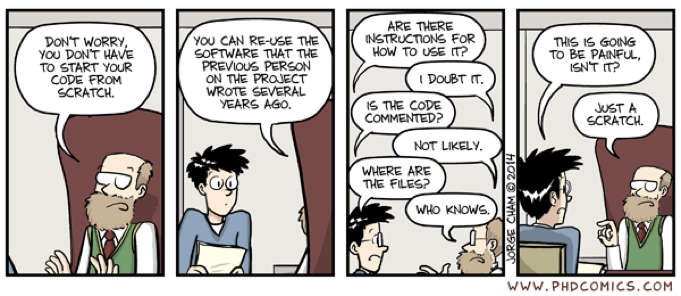
We are always on the lookout for tools that make life easier and more enjoyable, but we’re not collectors. We seek out well-designed, practical gadgets that we can actually use—prioritizing functionality over sheer quantity or the lowest price. Most importantly, we prefer tools that provide value without requiring a subscription, so we’re willing to invest in quality. This list isn’t meant to be comprehensive, nor is it about finding the “best deals.” It’s simply an honest attempt to share the tools we’ve found genuinely useful in our work.
fman - A dual-pane file manager. I’ve long been a fan of Midnight Commander, a console-based file manager with a text user interface, though it lacks mouse support. With fman, I’ve found a similar solution that offers some nice extras, while maintaining a sleek interface and powerful functionality.
Zettlr - An open source Markdown editor with built-in reference management (Zotero integration) and support for LaTeX, making it particularly useful for writing scientific papers, lab notes, or organising research. It's a great lightweight alternative to more complex writing tools.
Zotero - An open source tool for managing and organising research papers and bibliographies. It integrates with word processors and web browsers, making it easy to collect and cite references. Zotero offers similar functionality to commercial tools, but without a paywall.
bioicons - High-quality science illustrations. Bioicons offers a collection of open-source icons for life sciences, which I find invaluable when preparing professional presentations and visual content. It’s free and saves a lot of time when I need ready-to-use illustrations.
BioRender - Although not fully open source, BioRender offers a free tier and is an online tool for creating professional quality scientific figures and illustrations. It offers a drag-and-drop interface and a large library of pre-built components, making it an easy and quick solution for creating biology-related visuals.
wizard zines by Julia Evans – Everlasting tech publications. We’ve all bought large IT books, only to find them outdated or filled with irrelevant information. Julia Evans’ zines, on the other hand, focus on essential, evergreen knowledge in a compact and approachable format. Perfect when you want just the knowledge you need, without the fluff.
Spurious Correlations by Tyler Vigen - A website that humorously showcases unrelated data sets with high statistical correlations, highlighting how correlation does not imply causation.
Tropy - A free tool for organising and annotating research photos, which can be valuable for biologists dealing with large sets of images from experiments or fieldwork. It's easy to use and keeps data well structured.
Joplin - An open source note-taking and task management tool. It supports Markdown for formatting, and you can organise notebooks, synchronise notes across devices, and even encrypt your notes. For scientists, this can be a great tool for keeping lab notes or project management in order.
Fritzing - An open source tool for designing and simulating circuits. It’s user-friendly and designed for both hobbyists and professionals.
Seaview - Seaview is a user-friendly sequence alignment editor that supports various alignment and tree-building methods. It’s a good alternative to more complex software for users who want quick results.
Jalview - Jalview allows for interactive analysis and visualization of sequence alignments. Jalview supports alignment editing, annotation, and secondary structure visualization, making it a go-to tool for sequence comparison.
Galaxy - Galaxy provides bioinformaticians with access to a wide array of tools for genomic analysis without needing to install anything locally. It also supports workflows and reproducibility, making it great for collaboration and transparency in research.
MEGA (Molecular Evolutionary Genetics Analysis) - MEGA allows for sequence alignment, molecular evolution, and phylogenetic tree construction, often used in evolutionary biology and genetics research.
IGV (Integrative Genomics Viewer) - IGV enables the exploration of large-scale genomic datasets, allowing users to browse and visualize variants, alignments, and annotations across different genomes.
The European Galaxy Server - A web-based platform that provides free and open access to bioinformatics tools, workflows, and computational resources for researchers. It is part of the Galaxy Project, enabling users to analyze large-scale biological data without requiring programming expertise. Hosted by the Freiburg Galaxy Team, it supports a wide range of applications, including genomics, transcriptomics, and metagenomics, with a strong focus on reproducibility and accessibility.
